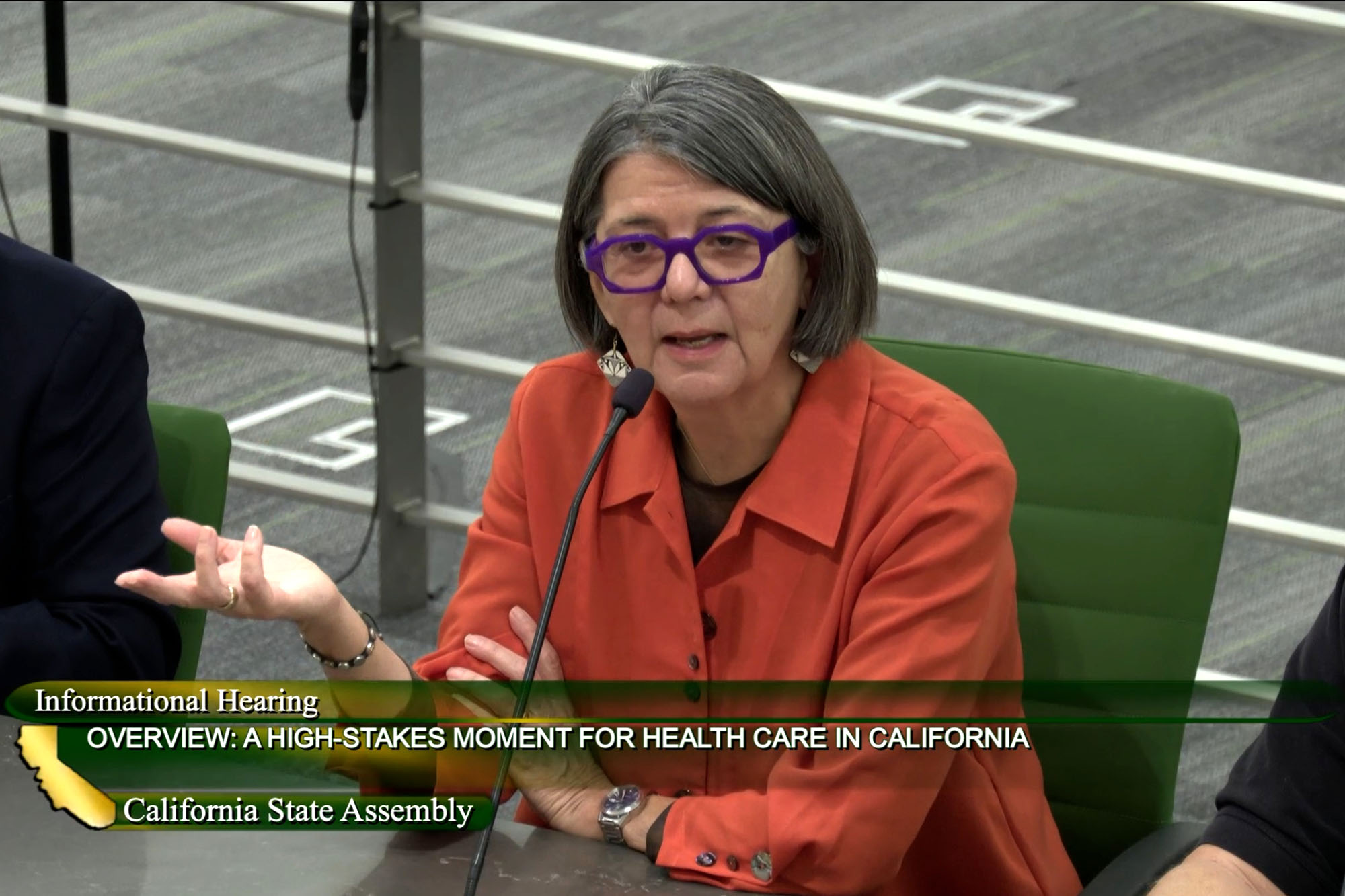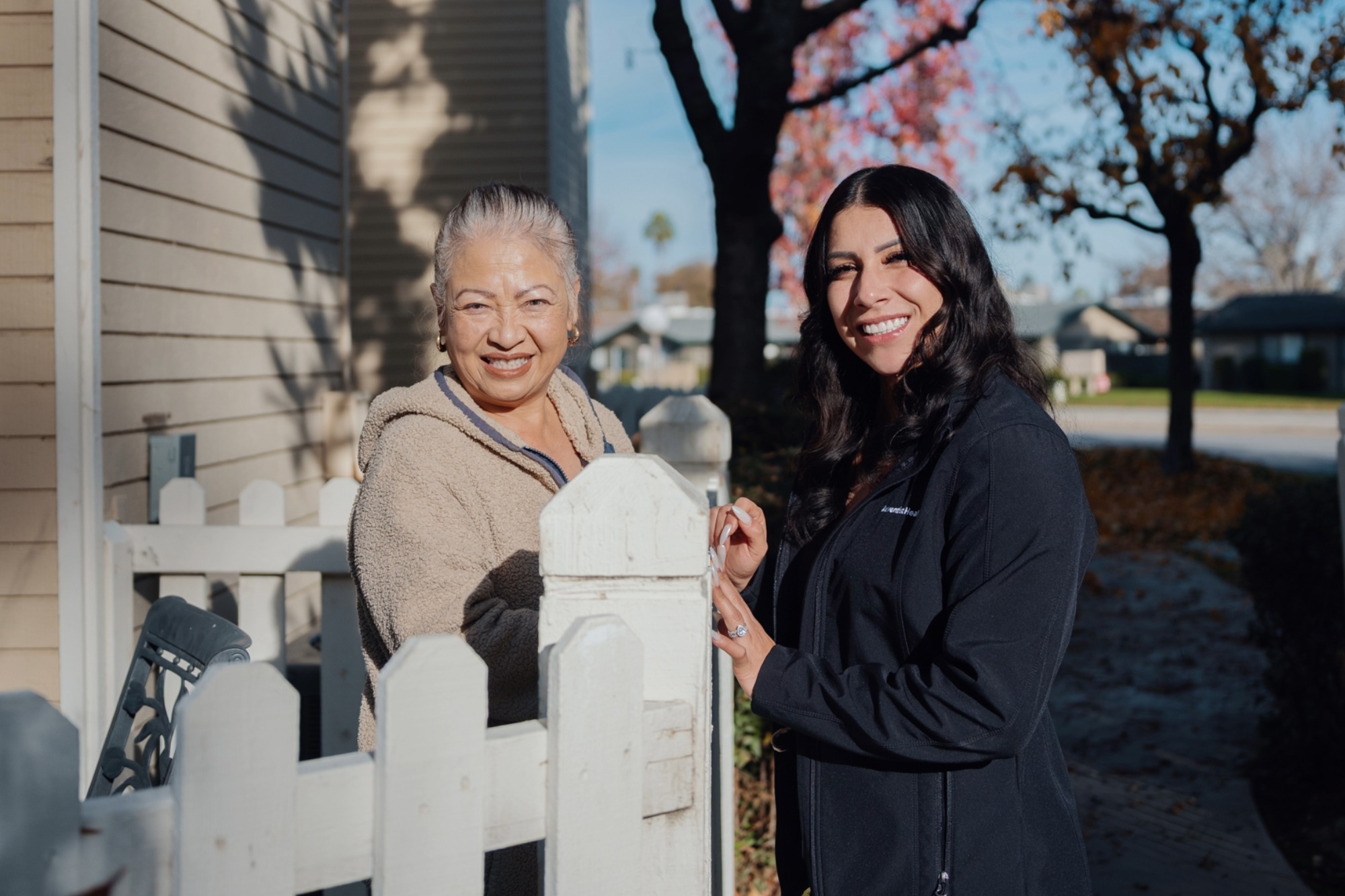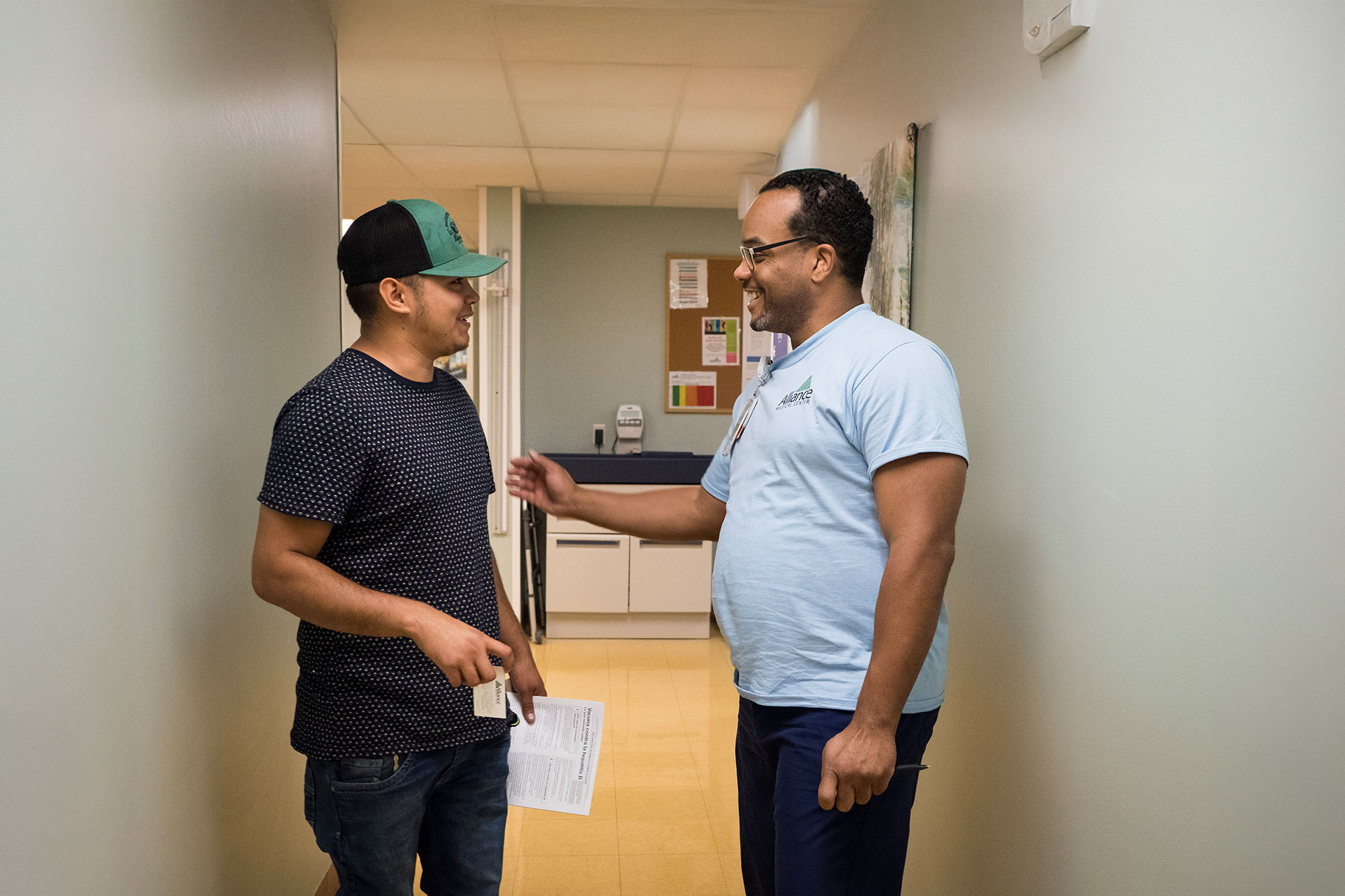|
Getting your Trinity Audio player ready…
|
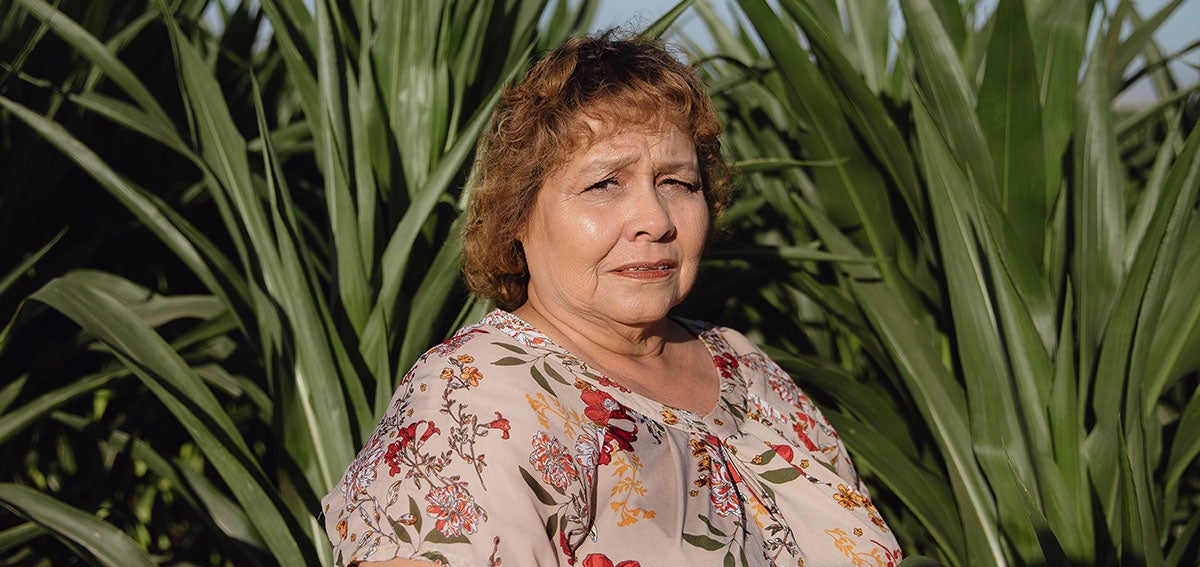
It took Sandra Garcia two painful years to get an appointment for gallbladder surgery.
Her primary care doctor told her she needed it. Her Medi-Cal health insurance plan authorized the surgery.
But when the 68-year-old grandmother from the tiny community of Poplar in Tulare County showed up at the hospital for the operation, staff informed her that they were unable to move ahead with the procedure. A form from the doctor was missing, she was told. For several months, Garcia tried to figure out how to get the form so she could undergo the surgery and get pain relief.
It was the kind of frustrating situation Garcia was used to hearing about from others in her community, most of whom are Spanish-speaking farmworkers like her. While many became eligible for Medi-Cal on January 1, 2024, when the state extended coverage to all undocumented immigrants with low incomes, these community members frequently struggle to obtain and use Medi-Cal benefits and to get help when challenges arise.
That’s why, amid her efforts to resolve her gallbladder care problems, Garcia jumped at the chance to join a new statewide committee of Medi-Cal enrollees and their caregivers. The 18-member Medi-Cal Member Advisory Committee (MMAC) provides input and feedback about Medi-Cal directly to the program’s managers at the California Department of Health Care Services (DHCS). The department has gathered countless advisory and stakeholder groups over the last half century, but this is the first to consist exclusively of Medi-Cal enrollees.
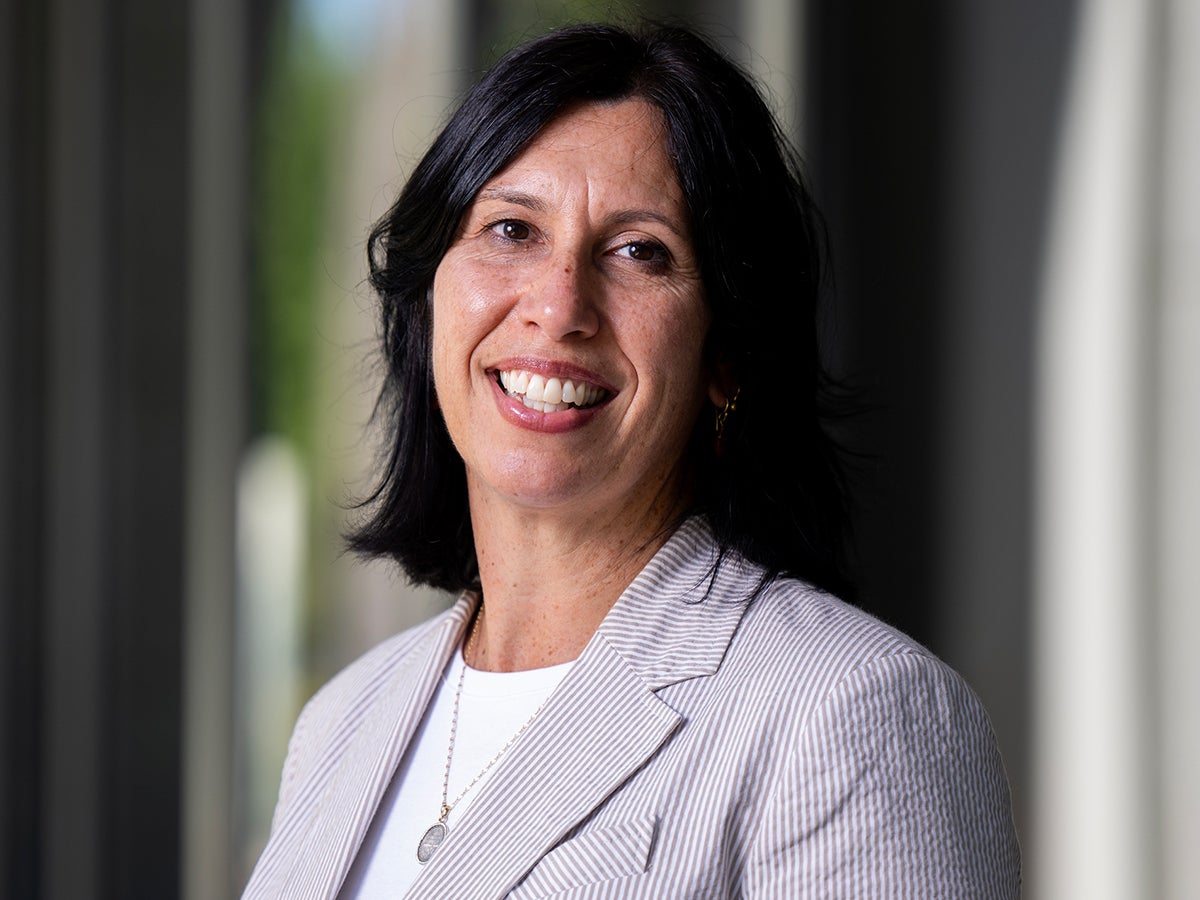
“We really want our members to be part of the decisionmaking process,” said DHCS Director Michelle Baass, who is always among the high-ranking staff members attending the meetings. “We think we will have a better program and better outcomes as a result. It’s really been essential to hear firsthand from our members about the delivery system. Our goal is to use that information to help improve our policies and our programs.”
Since May 2023, members have logged in from across the state to participate in the quarterly MMAC meetings, which are held via video conference. They include people from a wide range of backgrounds, including Californians of various races and ethnicities, monolingual Spanish speakers, rural residents, parents caring for children with special health care needs, young people, older adults, members of the LGBTQ community, and people with disabilities.
DHCS selected members who reflect the diversity of Medi-Cal’s enrollees and offer a variety of perspectives based on lived experience. The department worked with the Center for Health Care Strategies to design the committee by gathering input from Medi-Cal stakeholders, research organizations, and community engagement experts.
Ensuring Full Participation
To help committee members participate fully, a specialist works with them during and between meetings to ensure they receive and understand the meeting materials, talk through questions, and troubleshoot technical problems. Simultaneous interpretation in Spanish is provided during the sessions, and materials are translated into Spanish for the two members who need it.
The committee’s first year has focused on building trust and creating a space where everybody feels safe to have conversations and share their experiences, Baass said. As part of this trust building, meetings are closed to the public to protect personal health information shared by committee members. The public can view meeting summaries and materials online.
MMAC meetings are more than listening sessions. Committee members also participate in decisions about the topics that are discussed, which over the past five meetings have included Medi-Cal renewals; ideas for improving access to care, including addressing provider shortages; the CalAIM initiative; benefits; fair hearing, grievance, and appeal processes; and behavioral health services.
“This committee for me has been very important, it’s helped me a lot. I’ve learned how to make a complaint. I can share what I’ve learned in my community, and now I have the opportunity to ask and learn how to navigate this Medi-Cal program.”
— Sandra Garcia
In addition to her agricultural work, Garcia has served for more than 40 years as a health advocate and promotora for farmworkers. She said she has used her committee position to talk about the needs and challenges of people in her community. These issues include difficulties getting help at the local Medi-Cal office, trouble understanding Medi-Cal forms, problems getting through to Medi-Cal on the phone or even knowing where or how to call to get help, literacy and language barriers, health problems from pesticide exposure, and fear of accessing services due to immigration status.
She also draws from her personal experiences with Medi-Cal to inform committee discussions, such as how her inability to understand questions on renewal forms in the past led her to lose benefits and access to her preferred primary care doctor. Another challenge she has faced is navigating the intersection of Medi-Cal and Medicare benefits, because now she receives both.
Garcia brought up her struggles getting gallbladder surgery during a MMAC meeting, where DHCS leaders suggested she reach out to her Medi-Cal managed care plan for help. She followed their counsel and ultimately was able to get the issue resolved. She had surgery in September and is now recovering.
“This committee for me has been very important, it’s helped me a lot,” Garcia said. “I’ve learned how to make a complaint. I can share what I’ve learned in my community, and now I have the opportunity to ask and learn how to navigate this Medi-Cal program.”
One byproduct of the meetings is an infographic that explains in plain language how Medi-Cal members can file a complaint, make an appeal, or request a hearing. Committee members came up with the idea for the infographic and provided feedback on an early draft that is now being finalized. It will be included in materials sent out to Medi-Cal members and made available online, Baass said.
Input and Feedback
The DHCS director said committee feedback has also helped her department understand ways to better communicate with Medi-Cal members, such as through sending and receiving text messages; identifying information gaps; and confirming the need for future benefits, like housing supports and medically tailored meals. MMAC feedback will help the department continue improving these services, she said.
“As we think about all the new initiatives that we are working on, it’s not ‘do it once and then stop,’” Baass said. “It’s continuous improvement and really providing the channels and the avenues to hear what is working, what’s not, and what are ways to tweak things or make improvements or changes to really get at what we’re trying to achieve.”
DHCS plans to add members to the committee to represent additional demographic groups, hold some in-person meetings, and continue to broaden discussion topics. Although building this type of committee takes time and patience, it’s worthwhile because it can provide valuable, meaningful information that government agencies can’t easily obtain elsewhere, the director said.
“The bottom line is that our members know more about the program, and their experiences can help inform us in a way that we will never be able to capture unless we have these conversations,” Baass said.
Garcia said she’d like Medi-Cal officials to discuss improving dental coverage, raising awareness among health care providers of the impact of pesticides and Valley Fever on farmworkers, and recruiting more Medi-Cal enrollment workers who can understand and relate to the communities they serve. She said she’s glad the committee exists because it shows Medi-Cal members that the people in charge care about and want to listen to them.
“Over all these years, I’d never seen anyone really be interested and take into account us communities, us farmworkers like me,” she said. “This committee is going to help the communities and many people who have needs like me…I hope it exists forever.”
Authors & Contributors

Claudia Boyd-Barrett
Claudia Boyd-Barrett is a longtime journalist based in Southern California. She writes regularly about health and social inequities. Her stories have appeared in the Los Angeles Times, San Francisco Chronicle, San Diego Union-Tribune, and California Health Report, among others.
Boyd-Barrett is a two-time USC Annenberg Center for Health Journalism fellow and a former Inter American Press Association fellow.
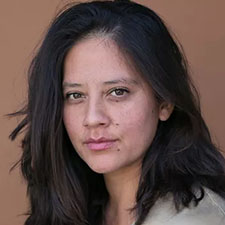
Zaydee Sanchez
Zaydee Sanchez is a Mexican-American visual storyteller, documentary photographer, and writer. Inspired by her upbringing in Tulare, in California’s agricultural San Joaquin Valley, her work is rooted in addressing the complexities of migration. With a focus on workers, gender, and displacement, she seeks to tell impactful, meaningful stories. Her work has been published in Al Jazeera, NPR, High Country News, palabra and more.
Her exhibition, “Tell Our Truth”, documented the stories of migrants seeking asylum during the Trump administration. The exhibition toured Los Angeles public libraries for a year, bringing discussions to various neighborhoods around the county. In 2019, the Commission on the Status of Women honored Zaydee as one of the Pioneer Women of the Year for her devotion to documenting and highlighting the Skid Row community in Los Angeles.

José Luis Villegas
José Luis Villegas is a freelance photojournalist based in Sacramento, California, where he does editorial and commercial work. He has coauthored three books on Latino/x baseball. His work appears in the Ken Burns documentary The 10th Inning and in the ¡Pleibol! exhibition that debuted at the Smithsonian Institution’s National Museum of American History and has been appearing at museums around the country.
Villegas’s work has been exhibited at the Museum of Fine Arts-Houston; the Baseball Hall of Fame in Cooperstown, New York; and at the Oakland Museum of California. Villegas also works as a medical photographer at Shriners Hospital in Sacramento.

